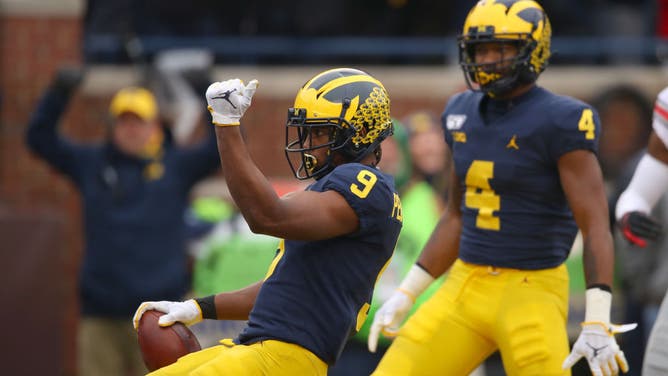The University of Michigan Paves The Way For Athletes To Finally Make Money From Jersey Sales

On July 1, the date that college athletes were finally given the ability to earn money from the use of their names, images, and likenesses (NIL), Johnny Manziel had an important question to ask. He wanted to know whether the establishment of NIL rights for college athletes meant that his Texas A&M jerseys with the #2 on the back, which so clearly was made for consumers to believe they were affiliated with Manziel, could finally bear his name.
Manziel mentioned to me that what made it so fuzzy for him was that when he was in school, fans could go online, type in an athlete's name, and the athlete's jersey would pop up, which later changed to combat the schools from so clearly profiting off of those college athletes without providing them the compensation they deserved. Perhaps Manziel can reach out to Texas A&M and broker a deal that will offer Manziel a royalty for any sales should the school wish to produce official Manziel jerseys with its partners. What is even more interesting in this new world where college athletes have NIL rights is that they can now, for the first time, enter into such arrangements while they are in school, taking advantage of the notoriety they establish and the moments they create in real-time.
The M Den, the official merchandise retailer of Michigan Athletics, is now selling customized officially licensed University of Michigan football jerseys with the name and number of many current Michigan athletes. The jerseys, which retail at $75 for youth jerseys and go up to $180 for limited versions, are currently only offered with current college athlete names listed. Former player names and numbers are not presently available. Manziel may be disappointed to hear that.
Current athletes have the choice of whether they wish to opt-in to the M Den's sale of jerseys that bear the player's names and numbers. While M Den is not disclosing the royalty percentage that Michigan football players will be receiving from each sale of the products, I have been told that each player will receive the same compensation per type of jersey sold, regardless of his standing. It is a flat rate per jersey and, according to one industry source, it is a very favorable number. Additionally, M Den's margin on each sale will decrease since it is not raising the price of its custom jersey program even though it has greater costs per unit based on the royalties being paid out to current Michigan athletes.
I was also told that M Den's program has been completely approved by Michigan's athletic department. Under Michigan's newly established NIL policy, "student-athletes, like all students and staff of the University, may not use the University name, trademarks, service marks, logos, symbols, or any other intellectual property, whether registered or not, without appropriate licensing approval." M Den already has these rights as Michigan's official apparel provider and the school has also approved such rights for players who have opted-in to the program. The school saw such approval as an easy "yes" unless the athlete chooses not to participate, per a source.
To be clear, the M Den deal with current Michigan athletes is not considered to be a group licensing deal and it was not established through the university. Instead, M Den went to the current college athletes and directly contracted with them. However, in the future, it is possible that college athletes will be able to organize as a trade association and provide group licenses for opportunities similar to this and possibly beyond, such as with regard to the creation of a new college football video game bearing the names, numbers, and likenesses of most college football players.